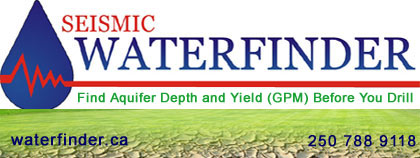|
|

|
  
Feature

2017/1/5
Bottled Water
BOTTLED WATER - CANADIAN BEVERAGE ASSOCIATION STATES ITS CASE
The Canadian Beverage Association represents more than 60 brands of juices, juice drinks, bottled waters, sports drinks, ready-to-serve iced teas and coffees, new-alternative beverages, carbonated soft drinks, energy drinks, and other non-alcoholic beverages.
Q&A
WaterToday - In your December 21 press release, you quote a Statistics Canada survey indicating that "bottled water as the main in-home water source has decreased by 11% since 2007", why then are some bottled water producers looking for new sources of water for bottling?
CBA - Canadian Beverage Association (CBA) members work diligently to manage water resources in an environmentally responsible way. Bottled water sold in Canada represents just 0.009% of water that is annually withdrawn from Canada's rivers, lakes, groundwater and oceans. New sources of water for bottling provide an opportunity to move or diversify operations. Water tables and other environmental factors are monitored constantly.
WaterToday - More than 90% of the cost of bottled water is due to things other than the water itself, such as packaging, shipping and marketing. (source: Natural Resources Defense Council). How does the CBA justify this considerable footprint for a commodity that already exists at the tap?
CBA - Bottled water provides a healthy, portable option for consumers and does not compete with tap water. It competes with other bottled beverages. Itís an important option for people to have in hot weather, when travelling and when municipal water options are simply not accessible. In fact, while 70% of all Canadian households use bottled water, 91% of bottled water drinkers consume tap water at home and bottled water on the go. In addition, there is a practicality to having bottled water available at all times for emergency.
The companies that take source or ground water bear all of the costs of their water takings, including acquiring the land, exploration, digging a well, building a factory, testing the water (and treating it as appropriate), bottling it, shipping it and employing the staff required to do so.
The companies that use municipal water also invest in physical plant operations, water purification, testing and bottling, and are invoiced by the host municipality for the water used.
WaterToday - While Bottled water is packaged using 100% recyclable Polyethylene Terephthalate (PET), a large percentage of it is not recycled. An often quoted statistics states that Toronto consumes an estimated 100 million plastic bottles a year, of which 35% are not recycled. That represent 35,000,000 bottles a year? Does the CBA have plans in the works to facilitate the recycling of plastic bottles?
CBA - PET plastic containers are one of the most recyclable consumer packaged product available in the Canadian market place. When recycled, PET is used to make new PET bottles, playground equipment, automobile parts, fleece clothing, and more. The average provincial recycling rate in Canada for refreshment beverage containers is 75%.
CBA is working with the Government of Ontario under the Waste Free Ontario Act to implement an expanded beverage-container recycling program in the province, modeled after that of Manitoba where we saw the recycling rate increase by 22% in just five years. This program will build on the existing blue box program to provide recycling opportunities where Ontarians live, work and play.
Increasing recycling rates of all beverage containers is a priority for CBA members.
WaterToday - According to an Australian 2013 study only three plastic disposal methods are routinely used on a large scale: landfill, incineration and recycling. Each technique has disadvantages and drawbacks. Biodegradation is seen as a more efficient and environmentally-friendly method but no protocol has yet been developed to feasibly dispose of PET by biodegradation on a commercial scale. With the substantial profits gained from bottling water, are bottlers looking to further this research?
CBA - The beverage industry is an environmental leader in the consumer packaged goods industry and was instrumental in establishing Canadaís first province-wide blue box program in Ontario in 1986. The beverage industry continues to fund and manage innovative recycling programs to increase beverage container recycling across Canada through industry-led efforts such as the Recycle Everywhere program in Manitoba, and Encorp Pacificís Return It campaign in British Columbia.
As new technologies emerge, itís certainly something the beverage industry will explore.
WaterToday - A 2010 University of Georgia reports calculates that 275 million metric tons (MT) of plastic waste was generated in 192 coastal countries in 2010, with 4.8 to 12.7 million MT entering the ocean. When tap water is readily available in most areas of Canada, how does offering an alternative to sugary drinks in a plastic bottle help our ocean in peril?
CBA - As a Canadian association, we can only speak to the Canadian context. Canada has beverage container recycling programs accessible to the vast majority of Canadians, which is something that may not be available in many other countries. All of these Canadian recycling programs capture and divert beverage containers at very high rates. We have a healthy and growing circular economy with recycled aluminum and recycled PET materials having economic value. This is a system that the CBA and other stakeholders have worked for decades to establish.
Canada also has litter abatement programs, including shoreline clean-up programs, to address litter left behind. What is needed is more support and education to bolster the diversion programs readily available to Canadians.
|
|
|
Have a question? Give us a call 613-501-0175
All rights reserved 2025 - WATERTODAY - This material may not be reproduced in whole or in part and may not be distributed,
publicly performed, proxy cached or otherwise used, except with express permission.
|
| |